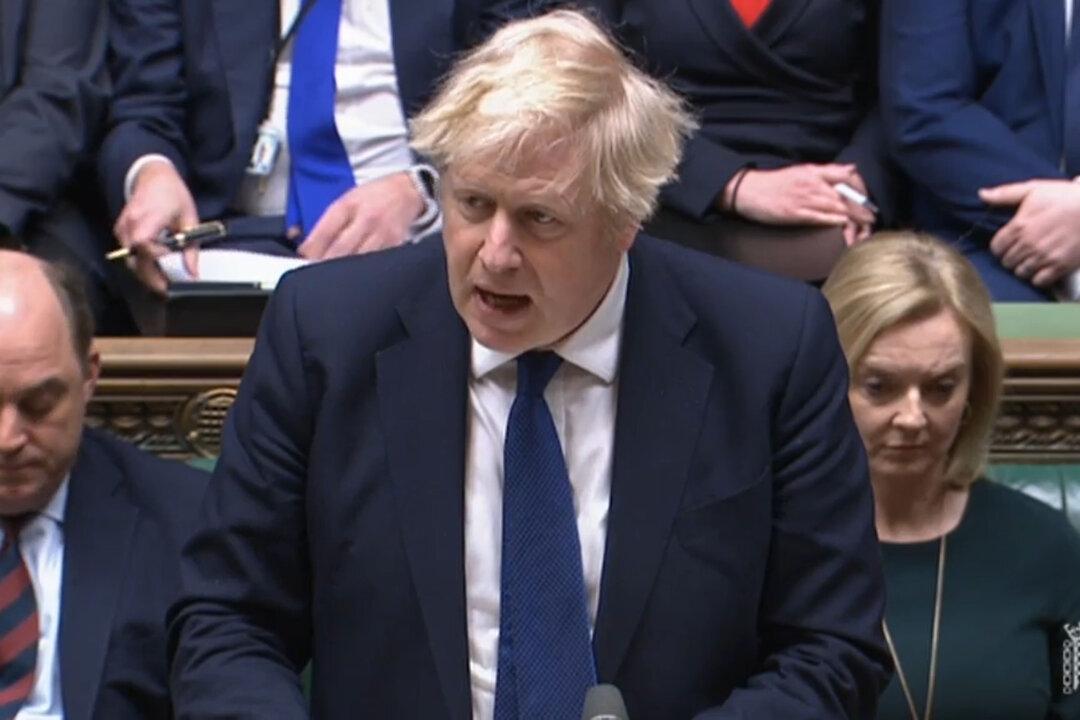Prime Minister Boris Johnson has announced Britain will “imminently” target Russian President Vladimir Putin and his foreign minister with personal sanctions, following the invasion of Ukraine.
The prime minister told NATO leaders in a virtual meeting on Friday that the UK would echo measures announced by the EU and later the United States to target the Russian leader.





